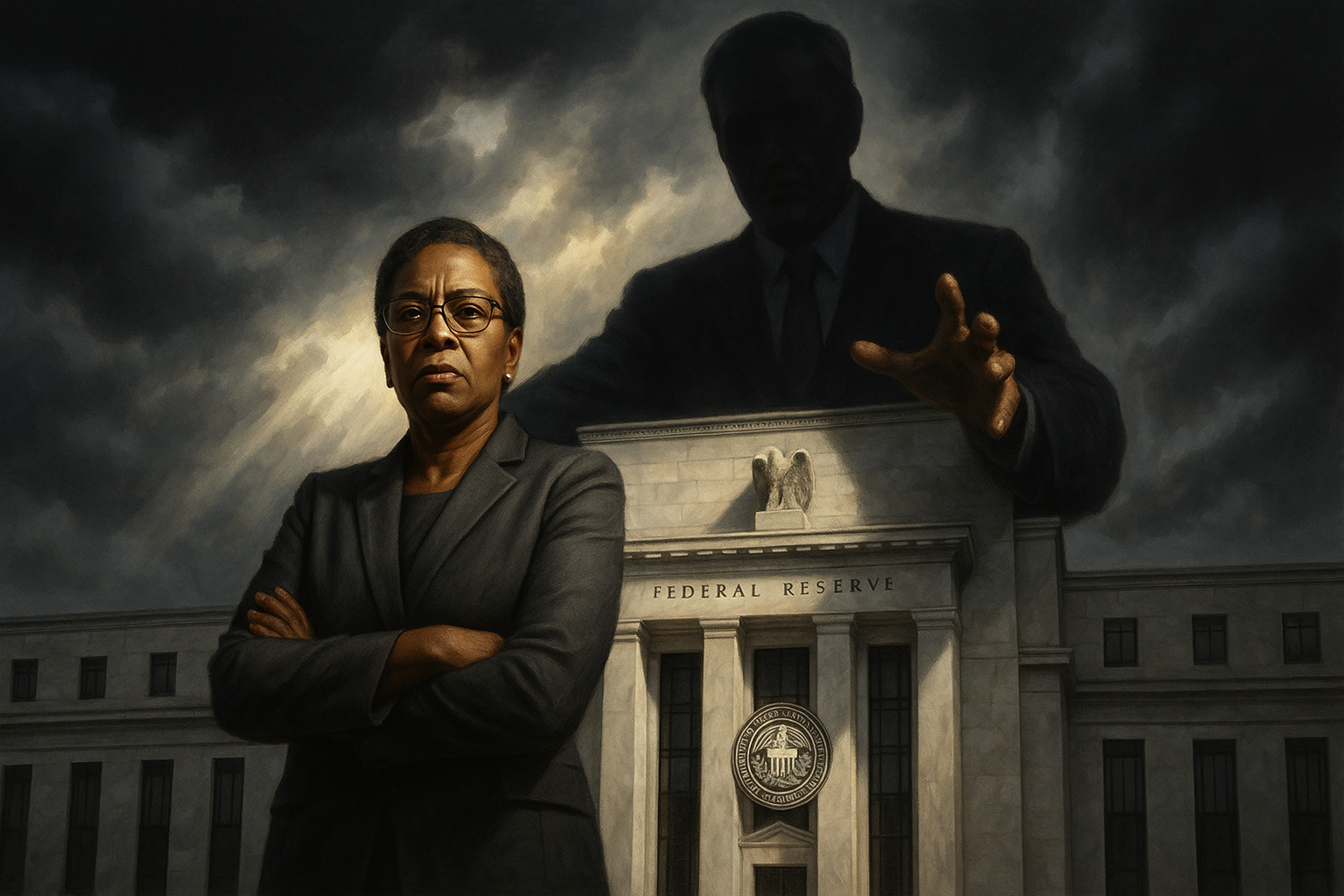The walls between politics and monetary policy—always thinner than purists might prefer—just got a stress test.
A U.S. appeals court slammed the brakes on former President Trump's attempt to fire Federal Reserve Governor Lisa Cook right before a critical policy meeting, creating what might be the most dramatic Fed storyline since Paul Volcker walked in with his unlit cigar and sky-high interest rates.
Let's be clear about something: in the Fed's 110-year history, no president has ever tried to remove a sitting governor. Not one. Until now.
The timing here is... well, suspicious doesn't quite cover it. The Federal Open Market Committee gathers Tuesday and Wednesday for what most market watchers (myself included) believe will deliver the first interest rate cut after a punishing series of hikes that's defined our post-pandemic economic reality.
I've covered monetary policy since the Bernanke era, and I've never seen anything quite like this.
So what's really going on? Is this about Cook specifically, or something bigger?
The independence of the Federal Reserve isn't just some abstract academic concept—it's the bedrock principle that allows our financial system to function without becoming a political football. There's a reason Fed governors serve 14-year terms that deliberately span multiple presidencies. There's a reason they can only be removed "for cause" (meaning actual misconduct, not "I don't like your policy votes").
When central banks become political puppets, bad things happen. Real bad things.
Look at Argentina's history of politically controlled central banks. Or Turkey's more recent adventures in presidential monetary policy. The pattern is depressingly predictable: rates get slashed before elections to create short-term economic sugar highs, inflation explodes, and the inevitable reckoning arrives with a vengeance.
(Sometimes I think every economics student should be required to spend a semester studying hyperinflation cases—nothing quite drives home the importance of central bank independence like seeing what happens without it.)
The irony in this particular drama? Trump regularly bashed Fed Chair Jerome Powell during his presidency for not cutting rates enough. Now he's trying to remove a governor ahead of what's likely to be—wait for it—a rate cut. Which suggests this isn't about specific monetary policy views but about who controls the levers.
Markets hate this kind of institutional uncertainty. They absolutely loathe it. They can adjust to tight policy or loose policy, but capricious, politically-driven policy? That's when risk premiums shoot skyward.
So far, market reaction has been somewhat subdued. Traders might be betting that Fed independence ultimately prevails, or perhaps they're still processing what this could mean long-term. Maybe they're just distracted by bigger immediate concerns.
Whatever happens with Cook's position, this episode highlights a worrying trend—the increasing politicization of technical institutions designed to operate above the partisan fray. The Fed. The SEC. Regulatory bodies meant to make data-driven decisions rather than politically expedient ones.
As we watch this drama play out, pay close attention to this week's FOMC decision. Will they go with 25 or 50 basis points? The size of that cut might reveal something about how the committee balances economic data against the unprecedented pressure of having its independence directly challenged.
In finance, as in politics, every action creates ripples. Sometimes tsunamis.
